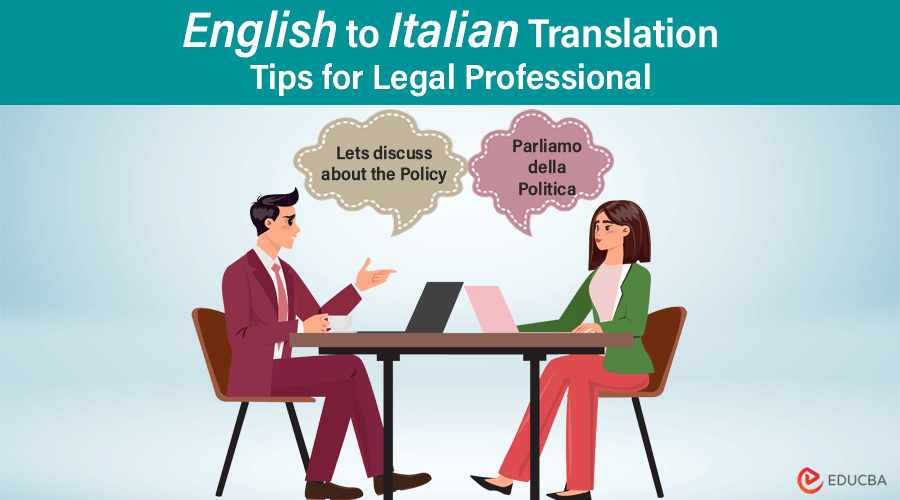
Translation Tips for Legal Professionals – Introduction
Translation tips for legal professionals refer to guidance and strategies to assist individuals specializing in translating documents from one language to another. Legal documents, such as agreements, laws, and personal identities, are essential for various legal processes, whether judicial, corporate, or personal. They serve as the official record of a person’s life, liberty, or even circumstances concerning life and death. Therefore, translation tips for legal professionals are of utmost importance to ensure the accuracy and precision in the translation of the documents.
Italian, being one of the most iconic languages, can present a unique challenge in legal translation. While English speakers might be familiar with some Italian words like musical terms and food names, it’s insufficient for effective translation. Translating from English to Italian demands more than just knowing the language; it requires a deep understanding of the target region’s legal system, industry-specific terminology, and the intended meaning. Therefore, opting for English to Italian translation services is important to avoid potential legal disputes and misunderstandings. Similarly, for translating legal documents from English to Mandarin or Japanese, you must consider hiring professional translators.
The article will discuss several essential tips to ensure your legal documents are translated effectively for the Italian market. So, let’s delve into these tips over a cup of coffee.
Why do Legal Translations Demand Expertise?
Legal translations require expertise for several reasons. Knowing a few words of another language isn’t enough to ensure an accurate translation, especially in complex legal documents. Each language has unique linguistic and cultural aspects that must be understood to produce an accurate translation.
The legal field has various procedures and categories, each with its own complexities. For instance, translating a document related to administration differs from translating one related to immigration. A translator specializing in one area may not necessarily be proficient in another.
To ensure quality translation, it’s important to work with translators who have the necessary licenses and certificates to demonstrate their expertise. These credentials show that recognized institutions have accredited translators and have undergone thorough training in a specific industry. This indicates their understanding of legal concepts and terminology in the source and target languages.
Tips for Legal Professionals
Here are some translation tips for legal professionals looking to translate documents from English to Italian:
#1. Understand the Aspect of Legal Translation
Legal translation is unique because it involves choosing the right words and ensuring they resonate with the audience. Legal documents have complex terms or legal jargon, hindering clear communication. For instance, simply translating “consideration” as “thought” may not accurately convey its legal meaning.
Also, legal systems vary globally, with five main types: civil law, common law, customary law, religious law, and mixed legal systems. In countries like the US and the UK, common law prevails and heavily influences judicial decisions. In contrast, countries like Italy rely on civil law governed by written codes.
These differences impact how legal documents are structured and use legal jargon. For example, US legal documents are detailed, covering various scenarios, while Italian contracts may be more concise, focusing on basic legal principles within the civil law framework. Understanding these aspects is important for effective legal translation.
#2. Do It Yourself or Hire Professionals?
When it comes to legal translation, it’s natural to want to handle it yourself, especially if you are confident in handling complex cases. However, the translation goes beyond knowing legal terms; you also need to understand the legal system in the target region. Each country has its format and structure for legal documents, which must be followed precisely to maintain its authority.
Moreover, these documents can impact a person’s life, freedom, or survival in certain situations. A single mistranslated term can lead to serious misunderstandings and consequences. Therefore, the safer option is to hire a professional translation agency.
Professional translators are experts in both English and Italian legal systems. Engaging a certified translation service ensures that all legal documents are accurately translated, preserving their intended meaning and legal significance. They understand each term’s aspects and legal weight and are familiar with cultural contexts that can influence legal interpretations. Partnering with them ensures clarity and accuracy in legal translations across languages.
#3. Find the Right Translation Partner for Your Needs
It may look simple, but finding the right translation partner in itself is a task. When choosing a legal translator, experience is the key. Do thorough research to find someone with a proven track record of English-to-Italian legal document translation. Here are a few characteristics of the best translation services you need to keep in mind while looking for a translation partner:
◆ ISO certification
◆ Briefing about the team and translation process
◆ Proven track record
◆ A well-development website
◆ A clear review of history
Well, do not completely rely on the translator’s expertise. It means a translator designs their work frame according to the given information. So, to ensure precision and accuracy, support your translator with the complete context. Share all the relevant background information for a clear understanding. Highlighting the specific legal terms would help the translator know where they need to pay extra attention for precise translation.
Final Thoughts
Translating documents from one language to another requires special attention. However, translating between languages supporting different legal systems, such as English and Italian, can be even more complex. Therefore, hiring professional services for accurate and precise legal translations is the best way to go.
Moreover, following these above-mentioned translation tips for legal professionals will help you, as a legal professional, accommodate your clients with the best. Good luck!
Recommended Articles
We hope this “Translation Tips for Legal Professionals” article was informative and helpful. For more information, refer to the articles below.

